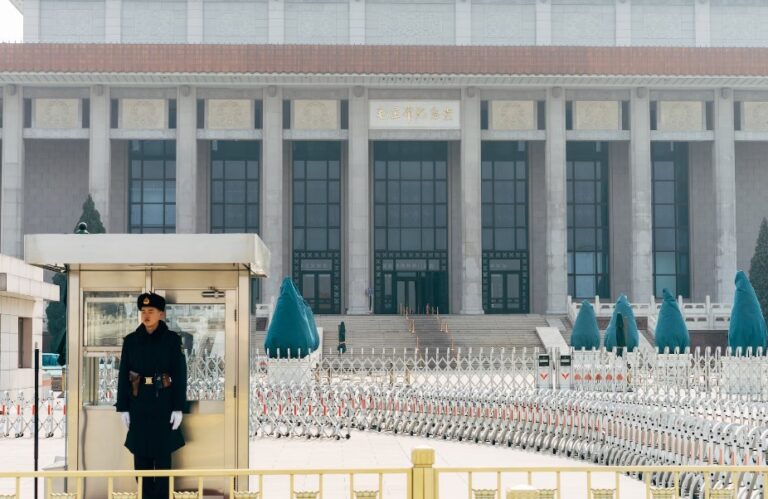Censored countries refer to nations where the government exercises strict control over media and information dissemination, restricting or altering content deemed inappropriate or threatening to the state’s ideology, political power, or cultural norms.
In a world dominated by digital media, it’s easy to assume that information flows freely everywhere. However, in many parts of the globe, the story is different. Several countries have imposed stringent censorship rules, controlling the narratives that reach their citizens.
Table of Contents
The 10 most censored countries
Let’s look at the 10 most censored countries, based on research from press freedom organizations.
1. North Korea
Often considered the most censored country in the world. Its citizens have virtually no access to outside information. At the top of the list, North Korea’s government retains full control over the media. The official Korean Central News Agency provides almost all of the information for North Korea’s 12 major newspapers, 20 periodicals, and broadcasters.
This agency primarily covers the actions and pronouncements of the political leadership. So, It’s nearly impossible for citizens to access any foreign media. The country’s leadership uses state media as a propaganda tool, keeping the populace in the dark about global events.
Read also: North Korea, what is life like in one of the most closed and authoritarian countries in the world
2. Eritrea
Eritrea is the closest to North Korea in its level of media control. The government owns all media outlets, and it’s extremely dangerous for journalists to operate independently.
Journalists in Eritrea face severe punishments for stepping out of line. Many have been imprisoned without trial, and there are no independent media outlets in the country.
3. Turkmenistan
Turkmenistan is another country where the state controls all media. Internet access remains limited and heavily censored. Independent journalists often face harassment and imprisonment.
Under the autocratic rule of its president, Turkmenistan’s media is just an echo chamber of government propaganda. All TV, radio, and newspapers are state-run, and internet access is heavily restricted.
4. China
Despite its global influence, China has one of the most sophisticated internet censorship systems, known as the “Great Firewall”. The government implemented the Great Firewall to block access to many international websites, including popular ones like Google, Facebook, and Wikipedia.
Domestic platforms, such as Weibo and WeChat, face strict regulation, and content deemed inappropriate gets quickly removed and even journalists are frequently detained for reporting on sensitive issues.
5. Saudi Arabia
Critics of the Saudi monarchy, especially journalists, face harsh penalties, including imprisonment. The assassination of journalist Jamal Khashoggi in 2018 shed more light on the country’s harsh approach to dissent.
Authorities go as far as to block websites that discuss topics deemed offensive to Islam, as well as political sites that challenge the monarchy. They’ve even imprisoned bloggers and activists for their online activities.
6. Vietnam
The single-party state tightly controls the media landscape. Journalists are often surveilled, detained, and sometimes sentenced to lengthy jail terms for critical reporting. The government restricts media outlets, blocks access to websites, especially those critical of the Communist Party, and arrests bloggers and online activists.
7. Iran
The Iranian government upholds one of the strictest Internet censorship policies globally, obstructing millions of websites, including social media and news sites. The government has long suppressed media freedom, especially during times of civil unrest.
Internet shutdowns are common, and many foreign websites are blocked. The management filters thousands of websites, especially those related to news, human rights, and foreign entities.
8. Cuba
Although Cuba has made great strides in recent years such as doing away with exit visas, which had for decades barred most international travel, it nevertheless maintains the most restrictive press freedom environment in the Americas.
The one-party Communist regime, in power for more than 50 years, has complete control over the print and broadcast media, which is required by law to operate “in compliance with the objective of the socialist society.”
9. Ethiopia
As part of the most censored countries, the Ethiopian government also exercises considerable control over media and information access. Frequently, social media platforms are blocked, particularly during political unrest, limiting citizens’ insight into national events. Journalists who report on sensitive subjects or critique the government face significant risks, including arrest and intimidation.
This centralized control restricts the free flow of information, constraining Ethiopians’ ability to obtain a comprehensive view of their nation’s affairs.
10. Syria
Lastly, In Syria, a protracted civil conflict coupled with strict government oversight has led to profound media censorship. The government, under President Bashar al-Assad, routinely suppresses dissenting views, blocking access to websites that oppose or criticize the regime.
International journalists often find it challenging to operate within the country, facing the dual threats of arrest by government forces and potential abduction by rebel factions. Domestic reporters and citizen journalists bear even higher risks, with many having been detained, tortured, or killed for their reporting.
This stifling environment has made Syria one of the most dangerous countries in the world for journalists, severely curtailing the free flow of information to its citizens and the global community.
The difficult terrain of censored Countries
A fundamental component of any democracy is press freedom. Without it, citizens cannot make informed decisions or hold their leaders accountable.
While the above countries represent the most censored, it’s crucial to remember that press freedom is under threat in numerous other nations as well. It’s up to global citizens to champion the cause of free press everywhere.
Read also: The countries under or at risk of dictatorship in 2023












